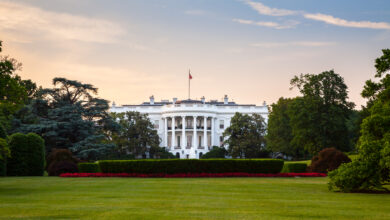Khashoggi, the caravan, Brazil’s elections: The How will it end? edition
FP Interrupted - October 26, 2018

The Jamal Khashoggi saga has gripped our attention, much to Muhammad bin Salman’s (MBS) surprise – and chagrin. After cutting off relations with Qatar, kidnapping the Lebanese prime minister, and killing civilians in Yemen, why would the current American president, who has called the press the “enemy of the people,” care about a single journalist — a columnist at the Washington Post of all places? Here’s the thing, MBS: Journalists protect their own.
The second miscalculation was how Turkey would react, which only says MBS you should sign up for our newsletter, pronto. If there is one person who has kept this story in the headlines, and forced Donald Trump to admit that the Saudis have engaged in the “worst cover up ever,” it is Turkey’s (strongman) president Recep Tayyip Erdogan.
This is where things go beyond Khashoggi – and get into power.
The Khashoggi case was a boon for Erdogan. It came on the heels of a very public rift with the U.S. this past summer — the worst between the two allies in decades. Erdogan and Trump clashed over the detention of an American pastor Andrew Brunson, whom Turkey accused of “terrorism” (the charges were dropped earlier this month). Trump sanctioned two Turkish ministers and leveled tariffs against Turkey. The Turkish lira, which had been on a downward spiral, spun out of control.
The Khashoggi case presented Erdogan an opportunity to change the dynamics between Turkey and the U.S. It also presented the chance to put a crimp in the Trump-MBS bromance — and weaken the Kingdom of Saudi Arabia (KSA) and strengthen Turkey. Ah, power.
Turkey and Saudi have long been regional rivals. Turkey, the heir of the Ottoman Empire. Saudi Arabia, the “custodians” of Islam (Islam’s holiest sites are in KSA). It’s more than a turf war, however. Erdogan supports the Muslim Brotherhood, a political movement founded in Egypt in 1928 and present (in various forms) in Egypt, Tunisia, Bahrain, Kuwait, and Jordan. The Saudis do not, and resent Turkey for its support of the movement. Tamara Cofman Wittes, Senior Fellow at Brookings, explains why in this terrific post. Today, the Saudis see the “Brotherhood as an existential threat: a model of governance that challenged their own authoritarian, monarchical Islamism with populist Islamism rooted in the democratic process.” She does note that this not to be confused with civil liberties. Cause, really.
When he first came to power in 2003 as prime minister, Erdogan cast himself, and Turkey, as a regional leader in the Middle East. A “model Muslim democracy,” which in the wake of the Arab Spring uprisings, the Obama Administration egged on. While he and Turkey may no longer be that model democracy (if a democracy at all), the desire to be a kingmaker still reigns. In Khashoggi’s brutal murder, the crown prince of Saudi Arabia has given Erdogan momentum.
How will this end? It remains to be seen whether Erdogan will continue to pursue his aggressive case against KSA or quietly work out an agreement, that involves a lot of money, with the Saudis. It is not clear whether the U.S. will impose sanctions on KSA and whether Trump will distance himself from MBS. There is also the question of whether the Saudi king, Salman, MBS’s father, will snatch power out of his son’s hands. What is clear is that the Middle East will continue to be a mess, with various figures vying for power. That includes the U.S., whose policies in the region have been a mess for a long time. That’s a post for another time.
On Khashoggi, Turkey, and KSA:
- The Khashoggi body double — Robin Wright on the mounting evidence of a premeditated murder. (New Yorker)
- King Salman may have to choose between his son, the crown prince, and Saudi Arabia’s close relationship with the U.S., writes Karen Elliott House. (WSJ)
- Relying on Saudi Arabia to investigate Khashoggi’s death or any of the many atrocities in Yemen appears more an attempt to ignore terrible acts than an effort to find out what happened, says Kristine Beckerle. (Just Security)
- And what will U.S. defense companies like Raytheon do after the Khashoggi case? Will it choose profit over principle? Joan Vennochi weighs in. (Boston Globe)
- How will Britain respond in the Khashoggi case when it implicates a key trading partner and the lifeblood of the UK’s arms-exports industry, Yasmeen Serhan asks. (The Atlantic)
- Arab states are fearful of what would happen if Saudi Arabia, the “pillar” around which the Arab relationship with the U.S. is anchored, is undermined. Karen DeYoung and Souad Mekhennet explain. (Washington Post)
- “The crisis after the disappearance of Khashoggi shows that the Trump administration knows it still needs Saudi oil. Becoming a net exporter of energy won’t change that.” Meghan O’Sullivan on America’s dependence on the “energy reality” in the Middle East. (Bloomberg)
This essay was reprinted with permission from FP Interrupted. Please sign up for their excellent newsletter by clicking the button below.




